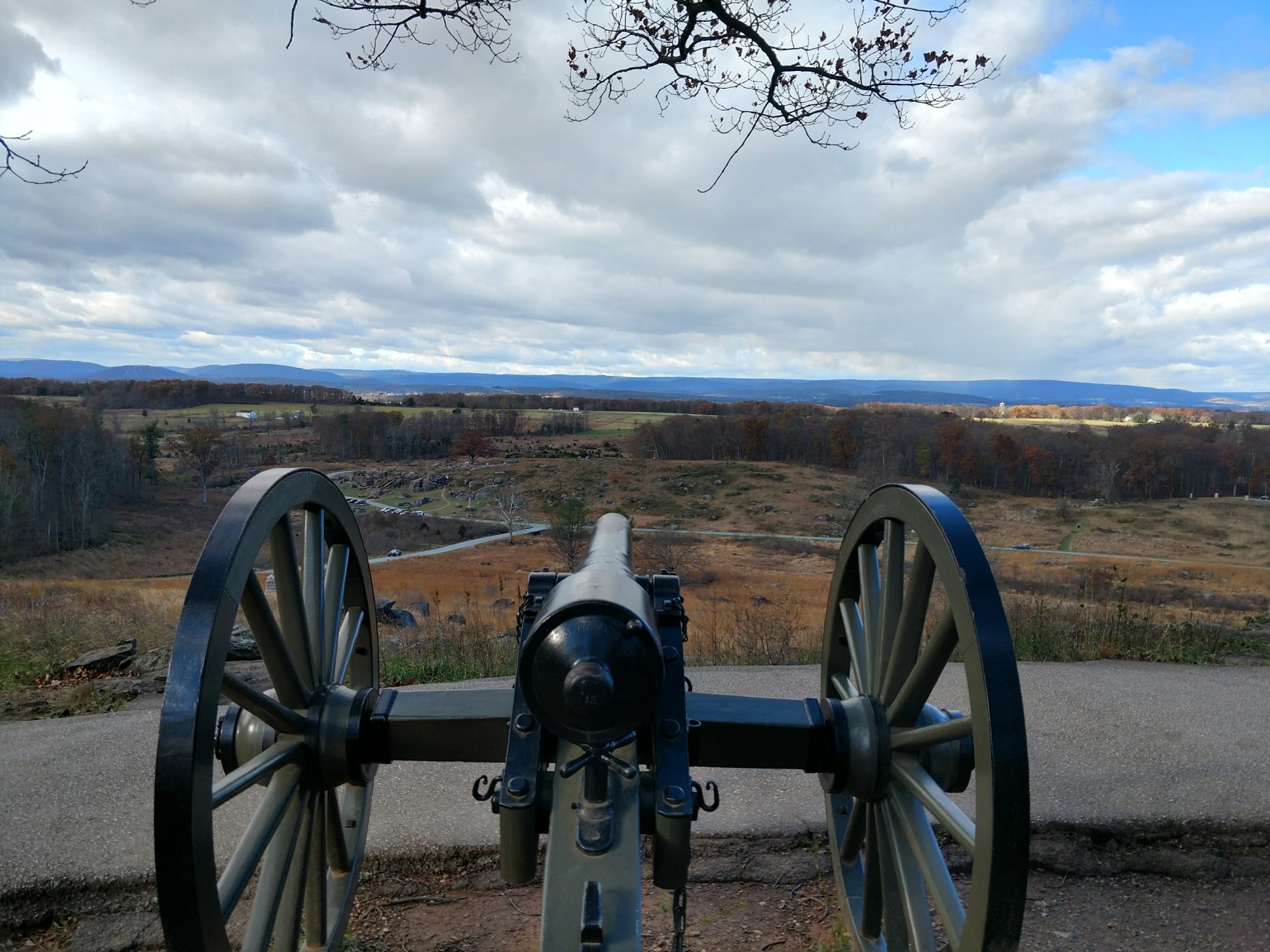“I come to bury Caesar, not to praise him. The evil that men do lives after them; The good is oft interred with their bones; So let it be with Caesar.”
– Julius Caesar
Memory is an odd thing. It affects not only people, but whole societies and cultures. Take the memory of the U.S. Civil War, for example. It’s not an easy memory by any stretch of the imagination. But it is a necessary memory. Necessary because it reminds as that there was once a time when we became so divided that we slaughtered each other. That alone should give us pause in our hubris. It should stand always as a memorial that we can be better as a people. But there are some that wish to take the memory of the Confederacy and glorify it; to make it part and parcel of our American experience. They become proto-Antonys who wish to praise Caesar, as it were, rather than simply burying him.
Recognize this flag?

Probably not. Unless you live in South Carolina or went to a particular military institution of education, this flag probably means very little to you.
But it should.
On January 9, 1861, the US-chartered ship Star of the West sailed into Charleston Harbor, bound for Fort Sumter. The ship was carrying supplies needed by the Federal garrison, the last U.S. troops in South Carolina manning a Federal installation. The New York-built vessel was unarmed – purely a logistics mission. Suddenly, as the ship was passing Morris Island, cannon fire broke the air and white smoke drifted across the water. The cadets of the South Carolina Military Academy had opened a volley of artillery fire at the ship – three shots striking it. For all intents and purposes, they were the first shots of the Civil War.
Flying over the jubilant cadets – who surely could not have known the import of their actions – was not the iconic Confederate battle flag. That would come later. Instead it was the South Carolina flag, with the crescent reversed, on a red field. This would come to be the flag of what the South Carolina Military Academy evolved into: the Citadel.
Today, the Citadel produces officers for all branches of the U.S. military. Above them – at parades, at football games, at ceremonies – flies the banner of rebellion. The banner that looked down as young men fired on the flag of the United States. Graduates of the Citadel are some incredibly fine officers within the ranks of the U.S. military. Some of the best officers I’ve served with are graduates of the Citadel. But they need to get rid of that flag. It is a direct representation of a culture of treasonous activity that stands opposed to the institution’s many and meritorious post-war accomplishments.
But it’s not just the Citadel.
With the recent backlash against the Confederate battle flag, the Citadel flag – Big Red, as it’s become to be known – has served as a handy way for people to subtly telegraph their support for the Confederacy. And let us not forget that the underpinnings of that institution were – as Alexander Stephens, VP of the Confederacy said – based on slavery: “its foundations are laid, its corner- stone rests, upon the great truth that the negro is not equal to the white man; that slavery subordination to the superior race is his natural and normal condition.”
This flag is not the only aspect of Americana that reflects poorly on our Union. The other piece is the actions of my own beloved U.S. Army National Guard in allowing southern units to carry on the lineage of Confederate units.
It was during World War I that the old state units of the National Guard finally were subsumed into the larger entity that was the U.S. Army. State institutions – some of them dating back to before the founding of the nation itself – disappeared. In order to capture the history of these formations, the Army began notating the lineage of the units. Sadly, this is also when they caved to southern revisionists who were casting the war as a fight for state’s rights rather than slavery – the myth of the Lost Cause. It was then that National Guard units that had lineage dating back to militia elements that had elected to fight for the Confederacy were permitted to keep that legacy.
Fast forward to the present day.
Picture this: you’re an African-American soldier standing in formation for your National Guard unit. Your battalion colors are posted out front. Colors that carry streamers listing the campaigns your unit fought in to defend a government that was based on the idea that you should be a slave. Is that the lesson we should teach our soldiers? Is that in any way in keeping with our values of respect, duty, and honor?
When state militia units decided to cast their lot with the Confederacy in 1861, they de facto broke faith with the Constitution. And left the United States. Why then do we allow these units to proudly carry streamers commemorating the very actions that were against the United States?
And don’t get me wrong, I’m not trying to whitewash history. It’s entirely appropriate – vitally necessary, even – to remember the Civil War: its actors, its causes, and its results. It’s something else entirely to glorify it and take pride in having fought against the United States for the cause of human slavery. Which is precisely what the Army is sanctioning when it allows National Guard units to claim Confederate unit lineage. And precisely why this practice needs to end.
I realize how preposterous this statement sounds because this would require a major cultural change in the Army, and so I know nothing will come of it. Units across the National Guard have their Civil War heritage too firmly rooted into their identity to change just now. For example, the Virginia National Guard’s 116th Infantry Brigade Combat Team carries on the lineage of the “Stonewall Brigade” – General “Stonewall” Jackson’s command. Asking them to give this up would damage unit morale, most would say.
Maybe.
What if we centered on what the unit has done since the Civil War? Such as the 116th Infantry’s attack during the Meuse-Argonne in World War I? Its distinctive place in the Normandy landings on D-Day? The valorous roles the unit has played in the conflicts in Iraq and Afghanistan? Many of these units date to before the founding of the country and have lineage from the American Revolution. Fine; all I am saying is that there should be a four year block that is absent from their lineage. No battle honors, nothing.
Not everything need be about the Civil War. It does not have to define us. We have redefined ourselves, because of, and in spite of, our own national failings.
We must acknowledge these failings, as a whole; we should not take pride in them. We must bury the Confederacy, not praise it.
Enjoy what you just read? Please share on social media or email utilizing the buttons below.
About the Author: Angry Staff Officer is an Army engineer officer who is adrift in a sea of doctrine and staff operations and uses writing as a means to retain his sanity. He also collaborates on a podcast with Adin Dobkin entitled War Stories, which examines key moments in the history of warfare.




You must be logged in to post a comment.